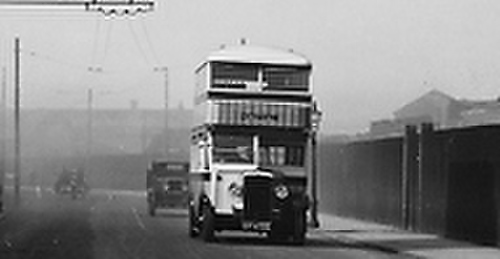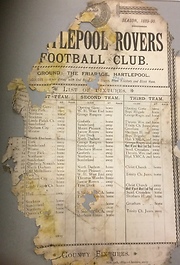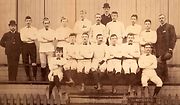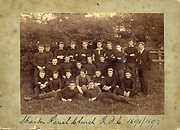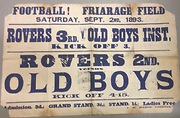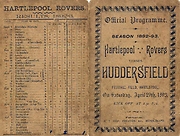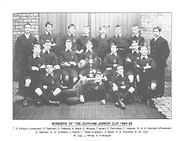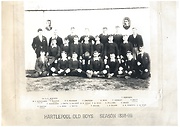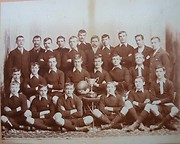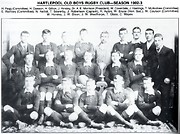 Hartlepool Sports & Leisure
Hartlepool Sports & Leisure
- Cinemas, Theatres & Dance Halls
- Musicians & Bands
- At the Seaside
- Parks & Gardens
- Caravans & Camping
- Sport
 Hartlepool Transport
Hartlepool Transport
- Airfields & Aircraft
- Railways
- Buses & Commercial Vehicles
- Cars & Motorbikes
- The Ferry
- Horse drawn vehicles
 A Potted History Of Hartlepool
A Potted History Of Hartlepool
- Unidentified images
- Sources of information
- Archaeology & Ancient History
- Local Government
- Printed Notices & Papers
- Aerial Photographs
- Events, Visitors & VIPs
 Hartlepool Trade & Industry
Hartlepool Trade & Industry
- Trade Fairs
- Local businesses
- Iron & Steel
- Shops & Shopping
- Fishing industry
- Farming & Rural Landscape
- Pubs, Clubs & Hotels
 Hartlepool Health & Education
Hartlepool Health & Education
- Schools & Colleges
- Hospitals & Workhouses
- Public Health & Utilities
- Ambulance Service
- Police Services
- Fire Services
 Hartlepool People
Hartlepool People
 Hartlepool Places
Hartlepool Places
 Hartlepool at War
Hartlepool at War
 Hartlepool Ships & Shipping
Hartlepool Ships & Shipping

1891 - Old Boys Field - Near the Tram Depot.
What we know about this image :
Though dating from the 1930s. this picture had captured the site of “Old Boys Field” in Cleveland Road to the right of the ‘bus, near to its junction with Union Road.
"Old Boys" RFC played on this field from 1893; they took over the site when Hartlepool Rangers ceased playing that year "due to a lack of a field", and moved to another site on the Field in 1898. Apparently the site was known as "Old Boys Field" when Rangers played there although all their games were advertised as "Near the Tram Depot" which stood to the rear of this picture at Greenland (the Tram Offices still stand, being re erected in William Gray House grounds). Press reports of Rangers matches also occsionally refer to Central Estate as Rangers ground. Later known as "Horsley’s Field", the site was used for many years for pit prop storage, one of a number of areas of the town that had prop storage - (giving rise to the quip, that Hartlepool was heavily wooded - with pit props!). The area is now covered in modern housing developments
The Field was also the field on which Rovers (initally formed as Hartlepool Albion) played their first games in 1879, carrying the posts to the game for each match to the ground and bringing them back after each game.
This site was also part of the 1922 Pit Prop Fire which devastated a lot of the housing in the area, fortunately without loss of life.
Date (of image) : 1/1/1930
Donor : Hartlepool Museums Service
Creator : Unknown
Part of the "Hartlepool Museums Service" collection
Location
Related items :
 1893 - 1906 - Hartlepool Old Boys' - The first era
1893 - 1906 - Hartlepool Old Boys' - The first era
Images from Old Boys first period as a club. Formed by Dr A E Morison (who started his Rugby career with Rovers),from Old Boys of the 1st Boys Brigade who attended his Bible classes and kept in touch.
Boys Brigade started Rugby playing Rugby in 1887,while the name Old Boys appears from October, 1891 when they played West III. The Old Boys Institute was created in November, 1892 with Old Boys RFC being formalised in 1893 and playing their first game against Rovers II. Going from strength to strength, they soon had players in the County and England XV. From 1902 they went into decline, struggling financially, and by October 1906 suffered the loss of players but had no appreciable incubus (penalty) but an old debt of £40 would be covered by another body – it was reported in the “Mail”- . They played their “final” game in the Pyman League against West III that October to honour the fixture.
More detail »




